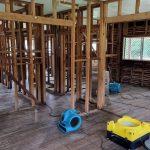When embarking on a drywall installation project, it’s essential to explore various techniques and strategies available to ensure a successful result. Whether you are upgrading a room or replacing existing drywall, possessing the right knowledge is vital for a smooth process. Before engaging the services of a handyman, it is crucial to consider several key factors. These include verifying the handyman’s licensing, comprehending the cost of drywall installation, and selecting a qualified professional whose skills align with your project requirements. Understanding these elements will not only save you time and money but also lead to a higher quality of work.
Step-by-Step Guide to Obtaining a Handyman's License for Drywall Installation
If you aspire to establish a career in the drywall installation industry, obtaining a handyman's license should be a primary goal. Although not mandatory in every state, several states enforce this credential to ensure compliance with local regulations and to protect consumers. To determine if a license is necessary, start by thoroughly researching the specific licensing requirements applicable in your state. Understanding these regulations will allow you to navigate the licensing process effectively.
For smaller tasks such as painting or minor appliance repairs, most states do not require a handyman's license. However, if you plan to undertake larger projects, separate licenses may be necessary for each specific task, depending on local laws and regulations. Knowing these distinctions can help you avoid legal complications down the line.
Along with obtaining a handyman's license, securing insurance is imperative. A contractor’s liability and property damage insurance policy provides essential protection against potential injuries or damages that might occur during a project. If you intend to hire employees, workers' compensation insurance becomes necessary to cover workplace incidents. Taking the time to review construction plans thoroughly will aid in accurately estimating both material and labor costs, allowing you to submit competitive bids without sacrificing quality.
When applying for a handyman's license specifically geared towards drywall installation, there are certain standards that must be met. For example, in Georgia, applicants are required to pass trade, business, and law examinations. Additionally, having a minimum of two years of relevant experience as a handyman, along with proof of general liability and workers' compensation insurance, is essential. If your work involves projects exceeding $1,000 or requires construction permits in various jurisdictions—like Hawaii—a general contractor's license may also be necessary to ensure compliance.
Though a handyman's license for drywall installation is not universally required, it is highly recommended for those planning to undertake extensive work beyond simple repairs and installations. Each state has its own regulations, but typically, they all involve having liability insurance and a handyman's license to protect against potential legal issues and property damage claims.
To thrive as a handyman, it’s crucial to familiarize yourself with the varying standards and licensing requirements across states. Significant differences often exist regarding handyman licenses at the local level, making thorough research essential if you aim to manage diverse projects successfully.
Analyzing Drywall Installation Costs: An In-Depth Exploration
The cost of drywall installation is influenced by a multitude of factors, including the scope of the project and the specific types of materials required. For instance, larger holes in walls typically necessitate full drywall replacement, which can substantially elevate the overall expense of the project. Additionally, the number of materials needed directly impacts both material and labor costs, making it imperative to assess the dimensions and complexity of the job accurately. A skilled handyman can often complete smaller tasks efficiently within just a few hours.
Conversely, major drywall repairs stemming from extensive holes or water damage demand more time, skill, and effort. In severe cases, entire sections of drywall may need to be removed and replaced, necessitating the expertise of a professional with specialized skills, which can significantly increase the total costs involved. Understanding these dynamics can help you budget effectively for your project.
Effective planning and preparation play a crucial role in drywall installation. Compiling a comprehensive list of required supplies and tools is essential, as the overall cost is determined by the size of the area to be covered and the complexity of the job at hand. Handymen often need the assistance of additional workers, particularly for larger-scale projects. Moreover, installation costs can fluctuate depending on whether prep work and cleanup are necessary. Intricate ceiling designs or numerous corners can further contribute to increased material and labor expenses.
The type of drywall selected for your project will also significantly influence the overall cost of installation. Standard drywall is commonly used in most commercial constructs and comes in various widths and thicknesses, allowing for flexibility based on specific project needs.
For larger tasks, expenses can accumulate quickly. The overall cost primarily hinges on the project's size and intricacy. While smaller jobs might exhibit a higher cost per square foot, drywall remains a more cost-effective option compared to other construction materials, making it a preferred choice for many homeowners.
While hiring a handyman may appear to be a budget-friendly solution, enlisting the services of a drywall specialist can yield substantial benefits. Specialists bring a wealth of expertise for tasks ranging from removing popcorn ceilings to constructing drop ceilings. Their proficiency with taping joints and applying textures ensures a superior quality of work. Additionally, they can adeptly handle issues related to water damage, hole repairs, and more complex texturing challenges.
When selecting a drywall contractor, it is vital to obtain a detailed contract outlining the project scope and associated costs clearly. The contract should specify the necessary number of drywall sheets, the type of materials to be used, and a comprehensive breakdown of labor and materials to avoid misunderstandings later on.
Strategic Approaches to Selecting the Ideal Handyman for Your Drywall Project
Before hiring a handyman for your drywall installation, it is imperative to ask several essential questions to ensure that you make an informed decision. Start by inquiring about the estimated timeline for the project. Even the most skilled drywall installers may have varying schedules, so understanding the timeframe will help set realistic expectations and avoid dissatisfaction upon project completion.
It is advisable to interview at least three potential handymen before making your final decision. During these interviews, inquire about their relevant experience and request references from previous clients. Ensuring that the handyman you choose possesses the necessary skills and tools for the job is crucial to achieving the best possible outcome. Additionally, confirm that their services align with your budgetary constraints.
Next, evaluate the potential costs associated with drywall installation. By comparing bids from various contractors, you can gain valuable insights into the prevailing rates for your project. A reputable contractor should furnish a detailed cost breakdown that encompasses all materials, supplies, and any additional expenses that may arise during the installation process.
Verifying credentials and insurance is another critical step before hiring a handyman. Obtaining a written contract and references can provide peace of mind, ensuring that the handyman is a suitable fit for your project. Requesting examples of their previous work will further bolster your confidence in your decision-making process.
A capable handyman should possess a diverse skill set, enabling them to manage a variety of tasks effectively. For instance, if your ceiling has a hole that requires drywall installation, a qualified handyman should be equipped to handle that job seamlessly. They should also be able to assist with related tasks, such as installing new light fixtures or repairing popcorn texturing.
Thoroughly check the handyman's experience and references before making a commitment. An experienced handyman is more likely to execute the job competently, increasing the chances of a successful project outcome. It’s wise to steer clear of contractors who employ high-pressure sales tactics or have inflated advertising budgets, as these practices may indicate potential issues with service quality.
Keep your budget at the forefront of your mind when hiring a handyman for drywall installation. An efficient handyman should be capable of completing the job promptly while respecting your property. They should also prioritize cleanliness, ensuring that the workspace remains tidy after the completion of the project.
A handyman familiar with the intricacies of plumbing and electrical systems is an excellent choice for repairing leaks or tackling related tasks. Their expertise can also extend to a range of projects, including hole repairs, light painting, deck repairs, and drywall installations.
Finding a trustworthy handyman in your area is entirely feasible. Explore online reviews and seek recommendations from friends and family to uncover skilled professionals. Additionally, don’t hesitate to ask your handyman for client references to verify their reputation and capabilities, ensuring you make a well-informed choice.
The post How Does a Handyman Do Drywall Installation? appeared first on https://gqcentral.co.uk
The Article Drywall Installation Techniques by a Handyman Was Found On https://limitsofstrategy.com


Comments are closed